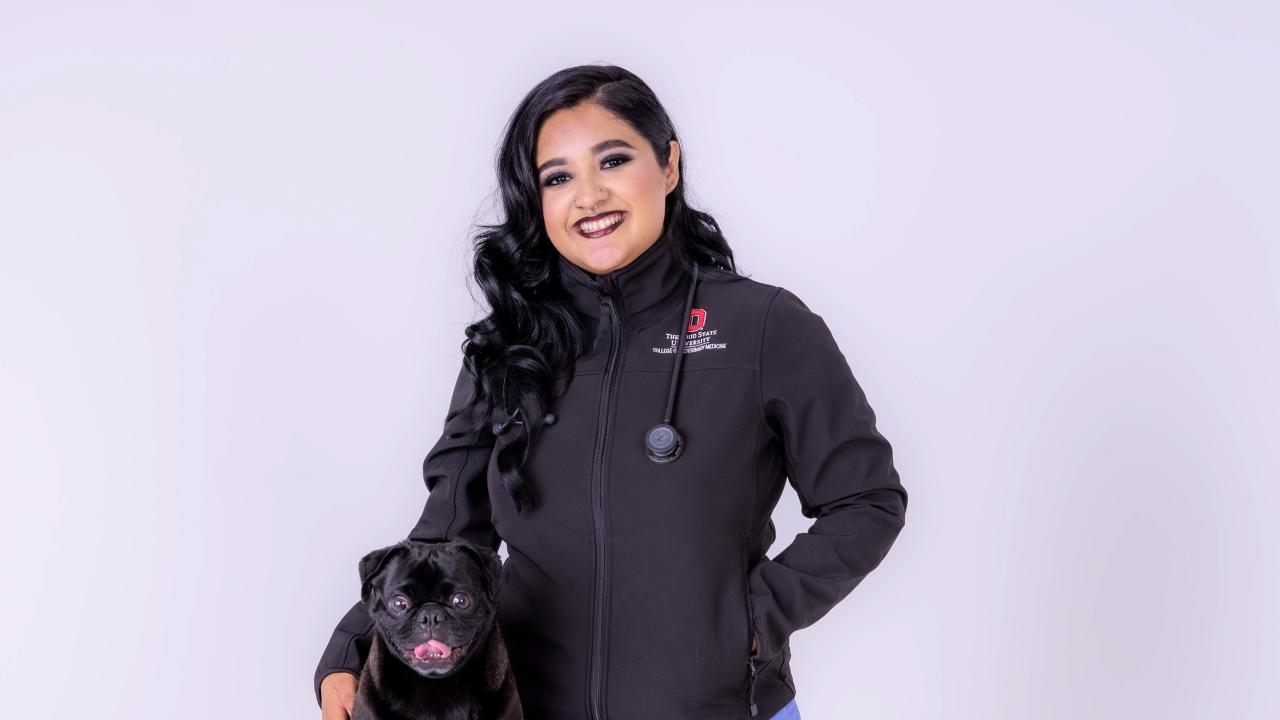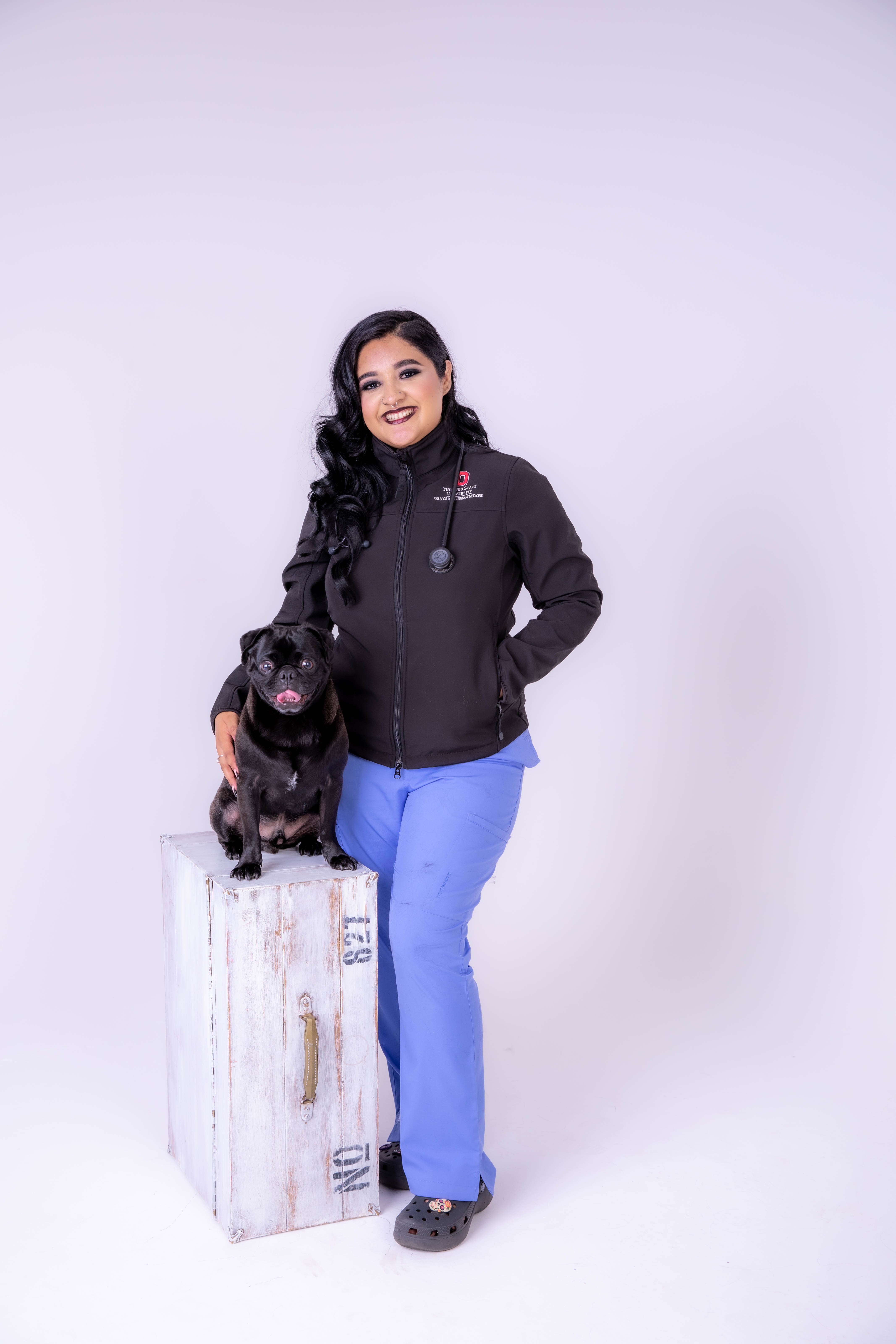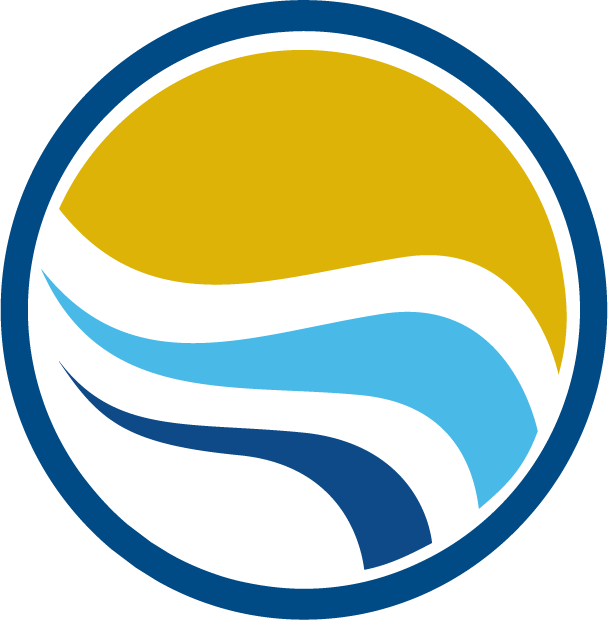
Alumni Perspectives: Diversifying the Veterinary Field with Mya Ajanel
Serving Low-Income Pet Parents
Second installment of the article series called Alumni Perspectives. The series is designed to help the UCD Community understand the long-term impacts of CLL programs. UCD Alum, Mya Ajanel '23, reflects on the impact a CLL Certificate Program had on her career and life choices. As a result of her experience, Mya is more driven than ever to make a difference in veterinary medicine. Mya Ajanel shares how the CLL certificate program helped shape her career path, and what she’s doing to pave the way for others.

When Mya Ajanel first heard about DLDP, she didn’t see the connection to veterinary medicine.
Mya was a first-year at the time and a student in the Biology Undergraduate Scholars Program (BUSP). Representatives of the Center for Leadership Learning were invited to give a class presentation about their various leadership development programs. In particular, they mentioned DLDP, which is a certificate program that aims to promote social justice and inclusion through leadership.
(Note: DLDP refers to the Diversity Leadership Development Program, which has since been renamed to CLSC, Cultivating Leaders for Social Change. CLSC will be used throughout the rest of the article.)
Mya decided to join the program — not because she saw any practical benefits for vet school, but because she was a first-generation, woman of color coming from a low-income home. “I wanted an experience that [spoke to] those parts of my identity,” says Mya.
Applying Program Values to Clinics
The CLSC program involves completing an applied experience, which can take the form of “a relevant community-based project, internship, or long-term service position”. For Mya’s applied experience, she chose to shadow a veterinarian in her hometown.
It was there, while volunteering, that she made the connection between her professional goals and the values being taught in CLSC.
“My city is predominantly people of color,” Mya explains. “The veterinarian didn’t have the capacity to make animal care accessible [because] he didn’t have interpreters.” So Mya began interpreting for those clients in Spanish. “It started hitting [me] all at once — how many veterinarians of color are there?”
The answer, unfortunately, is very few. The American Association of Veterinary Medical Colleges observes that “veterinary medicine remains one of the least diverse professions in the United States”. In terms of numbers, the 2021 Bureau of Labor Statistics reports that 93.3% of US veterinarians are White, while 5.6% are Asian, 4.7% are Hispanic/Latinx, and 1.2% are Black.
“I found that I was entering the whitest profession,” says Mya.
Despite this daunting reality, she embraced her career choice. “I was entering a field where I could have a positive impact on both people and their pets.” In addition to communicating with clients in their own language, Mya provides visibility for communities who find themselves absent from clinical settings. “If children walk into a [vet] clinic and see someone that looks like them, then they see that they can be a veterinarian too.”
For other students who think programs like CLSC can be scary, or just not relevant to their career, Mya recommends evaluating the program beyond its name and your assumptions about what it will be like. “CLSC makes people better humans, which will translate to good work and making an impact on whatever field you’re entering.”
For Mya, there’s no question that the veterinary field needs to be more diverse. If anything, that need for diversity helps her stay motivated while studying at The Ohio State University, where she is one of a handful of veterinary students of color. “When you’re surrounded by high achievers, it can be tough. [But] I know I’m needed. I can make a difference.”
“A Plan Without Giving Back is No Plan at All”
Understanding the need for diversity in veterinary medicine wasn’t Mya’s only takeaway from CLSC. During her time studying at UC Davis, Mya recalls wanting to distance herself from her hometown. “It was always in the back of my mind, that I couldn’t wait to finish college because it wasn’t far enough away from home. I wanted to create [something] better for myself.”
But that mentality was challenged when Sandy Holman, a guest speaker during a CLSC class session, talked about making meaningful social change. Sandy informed them that “a plan without giving back is no plan at all” — a line that has stuck with Mya ever since.
While Mya had wanted to get away, a number of people in her hometown lacked accessible veterinary care. “It didn’t sit right anymore,” says Mya. She soon came to a new resolution: “I have to go back and give back to my community”.
Mya’s community is more than just her neighborhood, however. It also encompasses those who are Latinx, lower-income, and animal lovers. Mya's desire to help such communities contributed to her decision to attend The Ohio State University; the university runs a Spectrum of Care Clinic, whose goal is to “ensure that veterinary graduates [...] have the competence and confidence to [...] offer alternative treatments for pets belonging to clients across a broad socioeconomic spectrum”.
In other words, there is a range of care that owners can afford to provide their pets. “If a client comes in with fifty dollars, we have to make that fifty dollars work,” says Mya. Even when the care is on the lower end of the spectrum, “that doesn’t mean it’s bad. It just means we have to be creative about [our solutions].”
Mya’s perspective here testifies to the need for diverse voices. Her conscious practice of empathy and a nonjudgmental attitude stands out when done in a setting that’s often blind to the circumstances of lower-income and minority groups.
“Giving back to my community was my biggest takeaway from CLSC,” says Mya, “on top of learning how to be a leader in veterinary medicine.” Through the certificate program, Mya found opportunities to get more involved at UC Davis. She got to meet people from a variety of majors and also participated in a club that helped people experiencing homelessness. These experiences led to her discovering a passion for community medicine. “I like medicine that helps people. That’s my calling.”
The path forward remains challenging, but Mya’s resolve is palpable. “In my core, I know I’m going to be a great veterinarian,” she says. “There’s a lot of work yet to be done. I’m excited.”
---------------------
For more information on our certificate programs and workshops, see the Complete a Certificate page and the Participate in a Workshop page of our website.
The CLL’s “Alumni Perspectives” series has two purposes: (1) to help current undergraduates better understand the purpose and the long-term impacts of our program, and (2) to highlight past CLL members who admirably dedicate their time to developing themselves and others as leaders.
